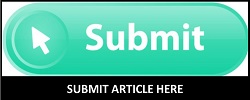Pelatihan Penyusunan Lembar Kerja Peserta Didik (LKPD) Berbasis Science, Technology, Engineering, Mathematic (STEM) dan Karakter Bagi Guru Sekolah Dasar Kecamatan Batang Kapas Kabupaten Pesisir Selatan
DOI:
https://doi.org/10.24036/abdi.v4i1.206Keywords:
Curriculum 2013, Elementary School, Student Worksheets, STEMAbstract
The content and implementation of learning must always adapt to changes and development demands that can answer 21st-century skills. On the other hand, the teacher is an important factor in implementing learning that refers to the development of student competencies. The adjustment of the learning content must be in line with the adjustment/increase of the competence of the teacher as the perpetrator of the implementation of the learning itself. The current learning demands should focus on students as the main learning subjects in the classroom. Training on Preparation of Student Worksheets Based on Science Technology Engineering and Mathematics (STEM) and character was given to 32 elementary school teachers in Batang Kapas District, Pesisir Selatan Regency. The implementation of this training is divided into two segments: (1) delivery of material with an accumulation of 16 hours of lessons and (2) guided assignments with an accumulation of 16 hours of lessons. The effectiveness of the training is determined by comparing the results of the pre-test and post-test of the trainees. The results of the analysis can be concluded that there is an increase in teacher understanding of 27.5% in aspects: 1) 2013 curriculum and integrated thematic learning, (2) STEM approach in learning (3) HOTS-based learning, (4) integration of character values in learning, and (5) the basics of preparing student worksheets.
Downloads
References
Achmadwati, W., Meirawan, D., & Rahyasih, Y. (2018). Pemanfaatan Sarana Prasarana Kerja, Self Capacity Building, dan Kinerja Tenaga Administrasi Sekolah. Jurnal Administrasi Pendidikan. https://Doi.Org/10.17509/Jap.V25i1.11566
Aldila, C., Abdurrahman, A., & Sesunan, F. (2017). Pengembangan LKPD Berbasis STEM Untuk Menumbuhkan Keterampilan Berpikir Kreatif Siswa. Jurnal Pembelajaran Fisika, 5(4), 85–95.
Ardiansyah, R., Diella, D., & Suhendi, H. Y. (2020). Pelatihan Pengembangan Perangkat Pembelajaran Abad 21 Dengan Model Pembelajaran Project Based Learning Berbasis STEM Bagi Guru IPA. Publikasi Pendidikan. https://Doi.Org/10.26858/Publikan.V10i1.12172
Blanchard, H, & Paul, H. K. (2005). Management Of Organizational Behavior: Utilizing Human Resources. 4thed Jakarta: Erlangga. Erlangga.
Bornstein, M. H. (2018). Science, Technology, Engineering, And Mathematics. The SAGE Encyclopedia Of Lifespan Human Development. https://Doi.Org/10.4135/9781506307633.N706
Bybee, R. (2010). Advancing STEM Education: A 2020 Vision. Technology And Engineering Teacher.
Calabrese Barton, A., & Tan, E. (2018). A Longitudinal Study of Equity-Oriented STEM-Rich Making Among Youth from Historically Marginalized Communities. American Educational Research Journal, 20(10), 000283121875866. https://Doi.Org/10.3102/0002831218758668
Cholily, Y. M., Putri, W. T., & Kusgiarohmah, P. A. (2019). Pembelajaran di Era Revolusi Industri 4.0. Seminar Nasional Penelitian Pendidikan Matematika (SNP2M) 2019 UMT.
Cone, M. B. (2011). Developing Principal Instructional Leadership Through Collaborative Networking. Dissertation Abstracts International Section A: Humanities and Social Sciences.
Dapodik. (2020). Data Pokok Pendidikan. In Kementerian Pendidikan Dan Kebudayaan.
Demonte, J. (2013). High-Quality Professional Development for Teachers. Supporting Teacher Training to Improve Student Learning.
Faujiah, A. (2018). Service Excellence. Ekosiana: Jurnal Ekonomi Syari’ah, 4(2).
Florea, N. M., & Hurjui, E. (2015). Critical Thinking in Elementary School Children. Procedia - Social and Behavioral Sciences, https://doi.org/10.1016/J.Sbspro.2015.02.161
Glickman, C. D., Gordon, S. P., & Ross-Gordon, J. M. (2009). Supervision And Instructional Leadership: A Developmental Approach. British Journal of Hospital Medicine.
Hill, C., Corbett, C., & St Rose, A. (2010). Why So Few? Women In Science, Technology, Engineering, And Mathematics. In Association of University Women.
Ibrahim, A. (2014). Konsep Dasar Manajemen Perpustakaan Dalam Mewujudkan Mutu Layanan Prima Dengan Sistem Temu Kembali Informasi Berbasis Digital. Desember.
Kartiwi, A., & Sa’ud, U. (2015). Kualitas Layanan Akademik Sekolah. Jurnal Administrasi Pendidikan Upi. Https://Doi.Org/10.17509/Jap.V22i2.5387
Kelley, T. R., & Knowles, J. G. (2016). A Conceptual Framework for Integrated Stem Education. In International Journal of Stem Education. https://Doi.Org/10.1186/S40594-016-0046-
Permendikbud, (2008). Kepemimpinan Kepala Sekolah Dalam Meningkatkan Kinerja Guru Pada Sekolah Dasar Luar Biasa Negeri Banda Aceh. (2017). Jurnal Administrasi Pendidikan : Program Pascasarjana Unsyiah.
Lase, D. (2019). Pendidikan di Era Revolusi Industri 4.0. Sundermann: Jurnal Ilmiah Teologi, Pendidikan, Sains, Humaniora Dan Kebudayaan. https://doi.org/10.36588/Sundermann.V1i1.18
Liana, N. A. (2016). Analisis Faktor Yang Mempengaruhi Kepuasan Orang Tua Peserta Didik Terhadap Layanan Pendidikan. Manajemen Pendidikan.
M.Pd, E. (2016). Manajemen Pelatihan Sumber Daya Manusia Dalam Meningkatkan Mutu Lulusan. Edutech: Jurnal Ilmu Pendidikan Dan Ilmu Sosial. https://doi.org/10.30596/Edutech.V2i2.596
Nisa, H. (2016). Komunikasi Yang Efektif Dalam Pendidikan Karakter. Universum.
Nugroho, P. J. (2017). Analisis Kebutuhan Model Pelatihan Untuk Meningkatkan Kompetensi Guru Sekolah Dasar. Jurnal Ilmu Pendidikan.
Nurlia. (2018). Strategi Pelayanan Dengan Konsep Service Excellent. Meraja Journal.
P3gtk. (2020). Tenaga Administrasi Sekolah (TAS) Merupakan Ujung Tombak Pelayanan di Sekolah. https://P3gtk.kemdikbud.go.id/Konten/Tenaga-Administrasi-Sekolah-Tas-Merupakan-Ujung-Tombak-Pelayanan-Di-Sekolah-71eaiptt
Rifma, D. (2017). Prototype Analysis Of Elemantary School Teacher of Kecamatan Pariaman Tengah Kota Pariaman.
Rifma, R., Alkadri, H., Ermita, E., & Meizatri, R. (2019). Teacher Prototype for Supervision Services Effectiveness.
Risdianto, E. (2019a). Analisis Pendidikan Indonesia Di Era Revolusi Industri 4.0. Reseachgate.
Rokhmah, N. A., & Anggorowati, A. (2017). Komunikasi Efektif Dalam Praktek Kolaborasi Interprofesi Sebagai Upaya Meningkatkan Kualitas Pelayanan. Journal Of Health Studies.
S/M, B. (2020). Badan Akreditasi Nasional Sekolah/Madrasah. https://bansm.kemdikbud.go.id/akreditasi
Samsirin. (2015). Konsep Mutu dan Kepuasan Pelanggan Dalam Pendidikan Islam. Jurnal At-Ta’dib.
Shaylide, I. S. (2014). Pengaruh Mutu Layanan Akademik Dan Biaya Pendidikan Terhadap Kepuasan Mahasiswa. Jurnal Administrasi Pendidikan Upi. https://doi.org/10.17509/jap.v21i2.6671
Sumarsono, R. B. (2015). Profesionalitas Kepala Sekolah & Jaminan Mutu Pendidikan.
Tjiptono, F. (2004). Prinsip-Prinsip Total Quality Service.
Torlakson, T. (2014). Innovate A Blueprint for Science, Technology, Engineering, And Mathematics In California Public Education. Californians Dedicated to Education Foundation.
Varrati, A. M., Lavine, M., & Turner, S. L. (2009). A New Conceptual Model for Principal Involvement and Professional Collaboration In Teacher Education. Teachers College Record.
Zubaidah, S. (2018). Mengenal 4c: Learning and Innovation Skills Untuk Menghadapi Era Revolusi Industri 4.0. 2nd Science Education National Conference.











